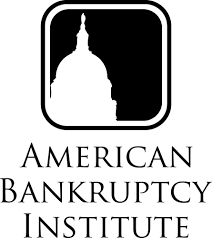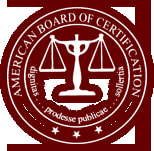|
There are many misconceptions about bankruptcy and credit, so let's take a look at the impact that bankruptcy can have. Filing a Chapter 7 will remain on your credit report for 10 years, just like a foreclosure. A Chapter 13 will remain on your credit for 7 years. But does this mean you will experience low credit scores after filing until the bankruptcy has been removed? The answer is that it depends. Credit reporting and scores are based on a myriad of issues, such as your debt-to-income ratio (DTIR), which is another way of asking how much debt you have to service compared to your income. If you owe $1000 for a credit card, but you only make $5000 a year, that's a problem. But if you make $500,000 a year, then your DTIR is going to be fantastic. Another issue is, how have you performed in making debt payments? You can improve your score in this regard after bankruptcy filing by opening a secured credit card, or staying current on a car payment, or house payment. Other items which may affect your credit score are the number of creditors you owe and number of times an agency has looked at your credit report. In some ways, filing bankruptcy will help because it will reduce the amount of debt that you service, improving your DTIR.
But the real question to ask is whether your credit score matters, or how much it matters. If you're older, and have a house and car (or two), your credit score may be less important if you're not planning to borrow to purchase big ticket items in the near future. If you're younger and want to buy a home in the next 5 years, that may be difficult or your interest rate may be high, if you file a bankruptcy. While the purchase of a car will be easier, and most people with a job can get a loan after bankruptcy, your interest rate will almost always be higher, perhaps in the 20s. So what we are really asking is (a) will you still qualify for credit and (b) what will the cost of that credit be? The answer to the first is that, for small balance credit cards or secured credit cards, and vehicles, as long as you're employed, almost certainly, yes. The answer to the second is that the cost of borrowing will be higher. But assuming you've discharged $50,000 in unsecured debt, the cost of borrowing for a $30,000 car will not reach those levels, even above 20% interest, so the benefits for filing exceed the risks. There is a 'humiliation' or 'emotional' factor to filing in that some people value themselves based on their credit scores. This is not a rational reason not to file, or to judge oneself. Unless they pay to run a background check, your friends, family and neighbors won't know whether you filed, and they cannot simply look at you and figure out your credit score. Moreover, if you're saving thousands of dollars by filing, that's much more important than having a high credit score. But the biggest problem with a credit score is that, in some cases, it's a reason to put yourself back in harm's way - by borrowing instead of saving. That's why if you're going to judge yourself on anything, it shouldn't be by your ability to borrow at low interest rates, it should be by your ability to save and invest.
0 Comments
STUDENT LOANS IN CHAPTER 13 – A PRIMER
Assuming you do not qualify for a hardship discharge (either offered by the government or through a Chapter 7), Chapter 13 can be a successful strategy for dealing with this type of debt. Often, when explaining the role of Chapter 13 in student loan management, potential clients seem confused and say 'I didn't think you could put student loans in bankruptcy'. The answer is complicated, and depends what is meant by 'putting' student loans 'in bankruptcy'. In Chapter 13, you can certainly do the following:
THE LOW INCOME FILER Many clients with student loans have issues paying what the creditor would like you to pay. Even in an income contingent plan, the hard realities of life, like raising children, or cost of living increases, can get in the way. Chapter 13 can make sense because in those cases, you can pay as little as 0% back to creditors while you're in the case. This has bad and good consequences. The bad is that unlike most other types of unsecured debts like credit cards or medical bills, the student loan debt continues to accrue interest. That means, assuming you don't pay anything towards your student loans while in the case, you'll actually owe MORE when you're out of the case in 3 to 5 years. While this is of little consequence if there's little to no chance you'll be paying them off in your lifetime due to age or illness, for the young filer, it could make things worse in the future. A smart move in some of those cases, where the student loans make up the bulk of your creditor claims, is to pay extra into your case to prevent 'negative amortization', which is a fancy way of saying it will prevent your loan from growing while you're in the case. THE HIGH INCOME FILER Some clients have so much income that they can pay a high percentage of their debt off in the Chapter 13. Where they have a large portion of their debt as student loan debt, it actually makes sense to pay this high amount in because it will tackle the debt and prevent it from growing. Additionally, the student loans are paid at the expense of the other creditors so a certain extent. For example, if you owe $100,000 in student loans, and $100,000 in credit card debt, and you are in an 80% plan, you'll wind up paying $80,000 to your student loans, and $80,000 to your credit card creditors. If you did not have student loans, you'd almost certainly wind up paying $100,000 to your credit card creditors, so having them in the case pulls money that would go to them and sends it to a debt that is non-dischargable. THE 100% TO CREDITORS FILER (aka the VERY high income filer) In this case, while student loan interest continues to accrue, often unsecured creditors interest rates are set either at zero, or close to zero (perhaps 3%), which is often more advantageous than prior to filing. But oftentimes Debtors in these plans want to pay their student loan debt outside of the plan. This usually does not make sense. Here's why. If your ability to make payments in the plan goes down, the student loans receive a share and can reduce the amount paid to credit card and medical bill debt. Further, where interest rates for student loans exceed or beat investment averages (i.e. 8%), paying these down makes good financial sense. That being said, you may want to talk to a financial advisor to be certain as to whether the time is right to pay them off. ALTERNATIVE PLAN STRUCTURES
|
AuthorHi! I'm American Board of Certification board-certified attorney Jesse Sweeney. I've been practicing bankruptcy for over 16 years and I thought this would be a great way to give you some insight into the process in a way that you can understand, without all the lawyer-speak that can make things confusing. Let me know if you have questions! Archives
May 2023
Categories |
 RSS Feed
RSS Feed


